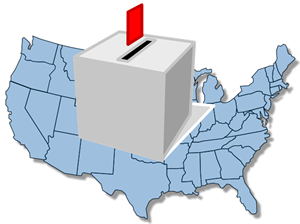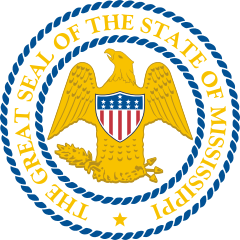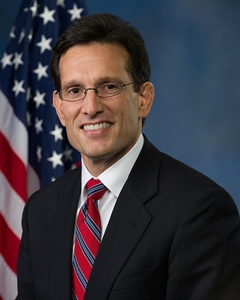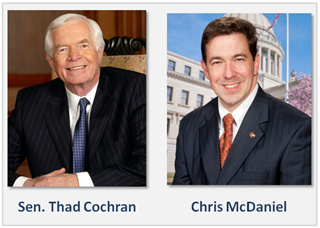June 14, 2021 •
Wyoming Begins to Draft Changes to Voting System

Wyoming Capitol - By Bradlyons
Members of the Joint Committee on Corporations, Elections and Political Subdivisions voted to draft bills to create either an open primary or a ranked-choice voting system. Currently, Wyoming operates under a dual partisan primary system. Under this system, each party […]
Members of the Joint Committee on Corporations, Elections and Political Subdivisions voted to draft bills to create either an open primary or a ranked-choice voting system.
Currently, Wyoming operates under a dual partisan primary system.
Under this system, each party holds an independent primary to select its candidate for the general election.
An open primary system allows for all parties to compete in a single primary election, with the top two votes advancing to the general election.
Rank-choice allows for voters to rank candidates in order of preference on their ballots, with the candidate securing the majority winning the election.
If no candidate wins the majority, the lowest candidate gets eliminated, the votes for that person go to the voters’ second choice, and the votes are retabulated until a majority is reached.
November 8, 2018 •
Akron Voters Approve Primary Date Change
A majority of Akron voters approved Charter Amendment Issue 9, moving the city’s primary date from September to May. The date change is expected to save the city money, boost voter turnout, and bring the Board of Elections into compliance […]
 A majority of Akron voters approved Charter Amendment Issue 9, moving the city’s primary date from September to May.
A majority of Akron voters approved Charter Amendment Issue 9, moving the city’s primary date from September to May.
The date change is expected to save the city money, boost voter turnout, and bring the Board of Elections into compliance with state law by enabling it to meet a deadline to get ballots to overseas voters 45 days before the November general election.
April 14, 2015 •
States Look to Move Presidential Primaries
Several states have introduced legislation changing their primary election dates to early March in preparation for the 2016 presidential election. Michigan has already enacted such legislation with the passage of Senate Bill 44 and Senate Bill 45. Both senate bills […]
 Several states have introduced legislation changing their primary election dates to early March in preparation for the 2016 presidential election. Michigan has already enacted such legislation with the passage of Senate Bill 44 and Senate Bill 45. Both senate bills change the presidential primary election to the second Tuesday in March. The bills take effect in time for the 2016 presidential primary election. In Minnesota, Senate File 1205, currently in committee, proposes to change the presidential primary election to the last Tuesday in March. If passed, this bill will also take effect in time for the 2016 election. A pair of companion bills have been introduced in the Washington State Legislature. House Bill 2139 and Senate Bill 5978 each propose to change the date of the presidential primary election to the second Tuesday in March. Senate Bill 5978, introduced at the request of Secretary of State Kim Wyman, passed the Senate on March 3, 2015, and was referred to the House Committee on State Government where a hearing on the bill was held on March 12. In New Mexico, House Bill 346 proposes to change the state’s primary date to the third Tuesday in March. If passed, this bill will take effect July 1, 2015, again in time for the 2016 presidential election.
Several states have introduced legislation changing their primary election dates to early March in preparation for the 2016 presidential election. Michigan has already enacted such legislation with the passage of Senate Bill 44 and Senate Bill 45. Both senate bills change the presidential primary election to the second Tuesday in March. The bills take effect in time for the 2016 presidential primary election. In Minnesota, Senate File 1205, currently in committee, proposes to change the presidential primary election to the last Tuesday in March. If passed, this bill will also take effect in time for the 2016 election. A pair of companion bills have been introduced in the Washington State Legislature. House Bill 2139 and Senate Bill 5978 each propose to change the date of the presidential primary election to the second Tuesday in March. Senate Bill 5978, introduced at the request of Secretary of State Kim Wyman, passed the Senate on March 3, 2015, and was referred to the House Committee on State Government where a hearing on the bill was held on March 12. In New Mexico, House Bill 346 proposes to change the state’s primary date to the third Tuesday in March. If passed, this bill will take effect July 1, 2015, again in time for the 2016 presidential election.
In what is being dubbed the “SEC” presidential primary, many Southern states are also considering legislation to change their primary election dates. Georgia Secretary of State Brian Kemp is leading an effort to do so, and urging his counterparts in Mississippi, Tennessee, Arkansas, and Alabama to adopt similar measures. Kemp’s proposal is a regional primary election scheduled for the first Tuesday in March. In Mississippi, companion bills adopt Kemp’s proposal, amending the state’s primary election date to the first Tuesday in March. Senate Bill 2531 passed the Senate and reported favorably from the House Apportionment and Elections Committee; House Bill 933 passed the House and eventually died in the Senate.
Other states considering similar legislation include Oklahoma (Senate Bill 233), Idaho (Senate Bill 1066), Florida (House Bill 7035), and Vermont (Senate Bill 76).
State Sen. Chris McDaniel is questioning the integrity of Mississippi’s GOP Senate primary runoff. McDaniel refuses to concede the election to U.S. Sen. Thad Cochran and claims some election activity was unfair, unethical, and illegal. Evidence suggests hundreds, if not […]

State Sen. Chris McDaniel is questioning the integrity of Mississippi’s GOP Senate primary runoff. McDaniel refuses to concede the election to U.S. Sen. Thad Cochran and claims some election activity was unfair, unethical, and illegal.
Evidence suggests hundreds, if not thousands, of voters crossed party lines between primary and runoff elections. Mississippians who voted in the Democratic primary illegally cast votes in the Republican primary runoff.
State election law experts speculate the election results will stand because it is impossible to assume all the irregular votes went to Cochran. Additionally, a strong public policy interest exists in accepting the finality of the runoff election; questioning the integrity of or redoing elections is a slippery slope.
Nevertheless, a conservative group known as True the Vote filed suit in federal court on Tuesday, July 1, against the Mississippi secretary of state and the Republican Party of Mississippi to challenge the results of the runoff.
June 20, 2014 •
June 24 Runoff for Mississippi GOP Primary
A June 24 federal runoff has been scheduled for the Mississippi Republican Senate primary. Incumbent Sen. Thad Cochran and state Sen. Chris McDaniel will battle again in a tea party vs. establishment showdown. With 49 and 49.5 percent respectively, neither […]
 A June 24 federal runoff has been scheduled for the Mississippi Republican Senate primary. Incumbent Sen. Thad Cochran and state Sen. Chris McDaniel will battle again in a tea party vs. establishment showdown. With 49 and 49.5 percent respectively, neither candidate earned enough of the June 3 vote to secure the party nomination.
A June 24 federal runoff has been scheduled for the Mississippi Republican Senate primary. Incumbent Sen. Thad Cochran and state Sen. Chris McDaniel will battle again in a tea party vs. establishment showdown. With 49 and 49.5 percent respectively, neither candidate earned enough of the June 3 vote to secure the party nomination.
McDaniel, running on a platform of change, hopes to unseat the longtime incumbent. Cochran’s congressional tenure began in 1972; he then served three consecutive terms in the House and six consecutive terms in the Senate.
June 11, 2014 •
Eric Cantor Loses Primary Battle
House Majority Leader Eric Cantor suffered a bruising primary defeat by tea party challenger Dave Brat on June 10. Strategists say Cantor’s 11 percentage point loss was due to a lack of field effort, fueled by overconfidence in his path […]
 House Majority Leader Eric Cantor suffered a bruising primary defeat by tea party challenger Dave Brat on June 10.
House Majority Leader Eric Cantor suffered a bruising primary defeat by tea party challenger Dave Brat on June 10.
Strategists say Cantor’s 11 percentage point loss was due to a lack of field effort, fueled by overconfidence in his path to victory. Many Republicans felt Cantor had become too removed from his district, mired in Washington infighting and too focused on the national stage.
According to historians, no House leader of Cantor’s rank has ever been defeated in a primary.
June 4, 2014 •
New Mexico Martinez and King Win Gubernatorial Primaries
Attorney General Gary King received more than 33 percent of the vote in a field of five candidates to win the Democratic nomination for governor. King will face a general election match-up with Republican Gov. Susana Martinez, who ran unopposed […]
 Attorney General Gary King received more than 33 percent of the vote in a field of five candidates to win the Democratic nomination for governor. King will face a general election match-up with Republican Gov. Susana Martinez, who ran unopposed in the Republican primary.
Attorney General Gary King received more than 33 percent of the vote in a field of five candidates to win the Democratic nomination for governor. King will face a general election match-up with Republican Gov. Susana Martinez, who ran unopposed in the Republican primary.
Martinez, a former district attorney from Las Cruces, was elected the state’s first female governor and the nation’s first female Hispanic governor in 2010.
King, a former state legislator and son of former Gov. Bruce King, raised about $476,000 for his gubernatorial bid since October. More than half of the contributions were in the form of King’s personal loans to the campaign.
During the same period, Martinez raised more than $2.4 million in campaign contributions.
June 4, 2014 •
Mississippi U.S. Senate Primary May Be Decided in Runoff
The U.S. Senate primary between incumbent Sen. Thad Cochran and tea party challenger Chris McDaniel remains too close to call after the June 3 election date. If neither candidate receives 50 percent of the vote, a runoff election will be […]
 The U.S. Senate primary between incumbent Sen. Thad Cochran and tea party challenger Chris McDaniel remains too close to call after the June 3 election date.
The U.S. Senate primary between incumbent Sen. Thad Cochran and tea party challenger Chris McDaniel remains too close to call after the June 3 election date.
If neither candidate receives 50 percent of the vote, a runoff election will be scheduled for June 24.
The race was considered one of the few remaining chances for a tea party victory after a string of primary challenges ended in defeat.
December 3, 2013 •
MA 2014 Primary Date Changed
The 2014 Massachusetts state primary has been moved up a week from September 16 to September 9 due to the passage of House Bill 3764. This bill only changes the 2014 primary date and does not affect future state primary […]
 The 2014 Massachusetts state primary has been moved up a week from September 16 to September 9 due to the passage of House Bill 3764.
The 2014 Massachusetts state primary has been moved up a week from September 16 to September 9 due to the passage of House Bill 3764.
This bill only changes the 2014 primary date and does not affect future state primary dates. The bill was introduced and passed by the House on November 18, passed by the Senate the following day, and signed by the governor a week later.
May 22, 2012 •
New York Delays State Primary Election
State wants September 11 focus on remembrance, not politics
 Governor Andrew Cuomo signed a bill today that will push back the state’s primary by two days, to September 13, 2012. The primary is traditionally scheduled for the second Tuesday after Labor Day, but this year that day is September 11.
Governor Andrew Cuomo signed a bill today that will push back the state’s primary by two days, to September 13, 2012. The primary is traditionally scheduled for the second Tuesday after Labor Day, but this year that day is September 11.
Out of respect for those that attend annual September 11 memorials, the state decided to change the date of the primary. The state also moved the primary back two days in 2007 for the same reason.
The delayed primary date will push back all pre and post-primary report due dates by two days as well.
February 29, 2012 •
Government Tech and Social Media News
Take a look at today’s government technology news: A list of the top government social media projects, social media and the GOP primary, an IT ethics violation that is rocking both the state of New York and the city of Baltimore, and New York City votes on open government legislation.
 Social Media News
Social Media News
“Top 14 Government Social Media Initiatives” by J. Nicholas Hoover in Information Week.
“How Social Media Is Keeping the GOP Primary Going” by Micah Sifry in TechPresident.
IT News
“New York Officials Promise Reforms After Scathing IT Audit” by Matt Williams in Governing.
“Baltimore’s top IT official resigns after alleged ethical violations emerge in N.Y.” by Gus Sentementes in The Baltimore Sun.
Open Data
“In New York, Landmark Open Data Legislation Will Soon Be Up for a Vote” by Sarah Lai Stirland in TechPresident.
State and Federal Communications, Inc. provides research and consulting services for government relations professionals on lobbying laws, procurement lobbying laws, political contribution laws in the United States and Canada. Learn more by visiting stateandfed.com.

